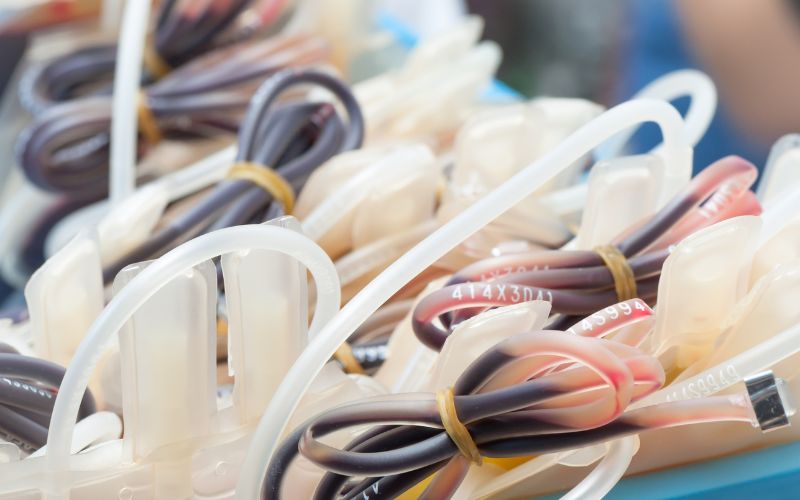Cord Blood Banking Cost: Understanding the Investment in Health

Cord banking is a groundbreaking medical practice that offers families the opportunity to preserve a valuable resource for their children’s future health. The process involves collecting and storing the umbilical cord blood, which is rich in precious stem cells with the potential to treat a variety of diseases and medical conditions. While the benefits of cord blood banking are evident, many prospective parents are concerned about the cost involved. In this article, we will delve into the factors that contribute to the cord banking cost and help you understand the value of this investment in your child’s health.
The Significance of Cord Blood Banking
Before delving into the cost aspect, it’s essential to understand why cord blood banking holds such significance in the field of medicine. Cord blood contains hematopoietic stem cells, which are responsible for producing blood cells. These stem cells have the unique ability to differentiate into various cell types, including red blood cells, white blood cells, and platelets. As a result, they can be used to treat numerous medical conditions, including various cancers, blood disorders, and immune system disorders.
Additionally, cord blood stem cells are less likely to be rejected by the recipient’s immune system, making them an ideal source for transplant treatments. They also eliminate the ethical concerns associated with embryonic stem cells, as cord blood is collected after the birth of the baby and does not involve any harm to embryos.
Factors Affecting Cord Banking Cost
The cost of cord blood banking can vary depending on several factors. Let’s explore these factors to gain a better understanding:
1. Private vs. Public Cord Blood Banks
The cost of cord blood banking can differ significantly based on whether you choose a private or public cord blood bank. Private banks charge an initial processing and storage fee, along with annual storage fees. These costs ensure that the cord blood is reserved exclusively for your family’s use. On the other hand, public cord blood banks accept donations free of charge. However, in this case, the cord blood becomes available to anyone in need, and there is no guarantee that it will be accessible to your family if required.
2. Collection and Processing Fees
The process of collecting and processing the cord blood requires specialized equipment and expertise. Private banks typically charge a fee to cover these costs. It’s essential to inquire about the collection and processing fees when choosing a cord blood bank.
3. Annual Storage Fees
For private cord blood banks, annual storage fees are a recurring cost that ensures the preservation of the cord blood over time. These fees may vary between banks, so it’s crucial to consider this factor while making a decision.
4. Length of Storage Commitment
Some cord blood banks offer different storage options, such as short-term and long-term plans. The length of storage commitment can impact the overall cost. Longer storage commitments may offer cost savings, but it’s essential to evaluate your specific needs before opting for a particular plan.
The Value of Cord Blood Banking
While the cost of cord blood banking may seem like a considerable investment, it’s essential to recognize the long-term value it provides. Here are some points to consider:
1. Medical Advancements and Future Applications
Cord blood stem cells have already been used in the treatment of numerous diseases, and ongoing research continues to uncover new applications. By banking your child’s cord blood, you are securing access to potential future treatments that could prove life-saving.
2. Family Compatibility and Reduced Risk of Rejection
Cord blood stem cells are a genetic match for the baby from whom they were collected and have a higher likelihood of being a match for siblings and other family members. This compatibility significantly reduces the risk of transplant rejection and increases the chances of successful treatments for the family.
3. Emotional Peace of Mind
Cord blood banking offers parents peace of mind, knowing that they have taken proactive steps to safeguard their child’s health. The knowledge that a valuable resource is available in case of medical emergencies provides a sense of reassurance and emotional comfort.
4. Ethical Considerations
Unlike other sources of stem cells, such as bone marrow or embryonic stem cells, cord blood stem cells are ethically sourced and do not raise any ethical concerns.
Conclusion
Cord blood banking is a transformative medical advancement that empowers parents to secure a valuable resource for their children’s future health. While the cost of cord banking may initially seem like a significant investment, the potential benefits and long-term value make it a compelling choice for responsible parents. By understanding the factors that influence the cost and the invaluable benefits it offers, parents can make an informed decision that aligns with their family’s needs and priorities.
